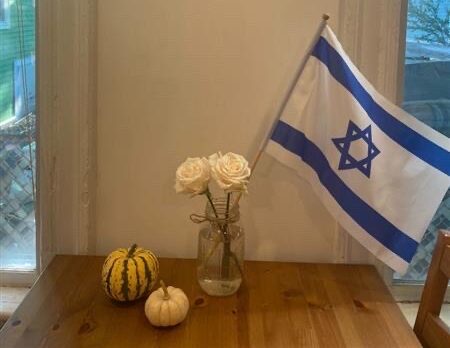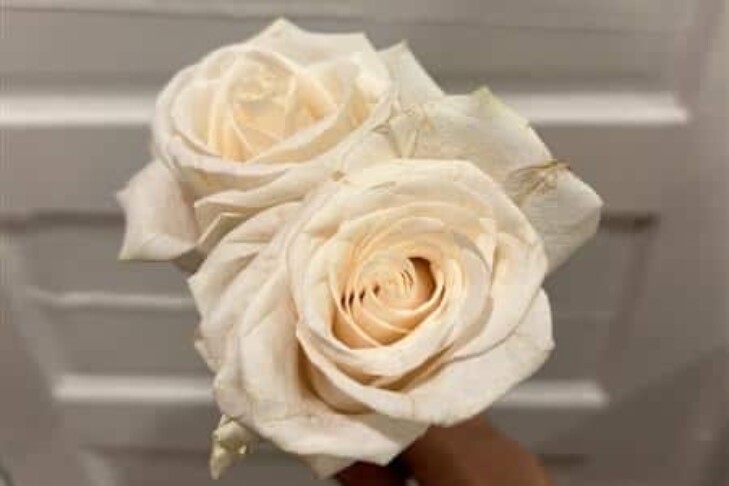The vitriol toward Jews and Israel was so intense, Molly Kazan had to delete the social media apps from her phone.
“There’s so much misinformation out there right now and disgusting things circulating online,” Kazan says. “It’s really terrifying to wake up every day and remember the terror attacks that happened on Oct. 7 in Israel and the increased antisemitism that has unfolded since then in cities across the world.”
For Kazan and her local Jewish friends, it was feeling like the safest place to be was around one another.
The development manager at Mayyim Hayyim, Kazan is also a board member of the Boston chapter of Jewish Women International Young Women’s Impact Network (JWI YWIN), an organization that champions those who identify as women and girls of all backgrounds by protecting their rights and safety, strengthening access to long-term security, and lifting and mentoring women leaders.
Although the group meets monthly and had plans in the works for their October event, Kazan said that, following the attacks on Israel, she and other members of JWI YWIN Boston wanted to come together and hold space for their community. They put out an informal invite to meet in the study room at Lehrhaus, Somerville’s Jewish tavern, on Thursday, Oct. 12.
“There were about 20 people there, which was amazing,” Kazan says. “There were several people, including Israelis, who said they felt the need to be with other people. They didn’t feel like they had community who understood their pain, and didn’t even realize that they needed it until this happened, and that it was just nice to be with Jewish friends.”

Kazan says the evening began with attendees talking, sharing, and processing the events that were unfolding, including how some JWI YWIN members in graduate school saw increased levels of hate on campus. Others working corporate jobs felt alienated from the silence of coworkers and colleagues.
What happened next surprised them all.
A friend of several of the JWI YWIN members texted from outside Lehrhaus and asked if she and a group of friends could come in and deliver each woman a white rose to show their support. Upon entering the study, Kazan says, the friend said, “We’re sorry to interrupt; we live in Boston and we’re part of the Christian community here. We wanted to let you all know that we stand with you, we see you, we are with the Jewish people and Israel. As a display of solidarity, we wanted to give each of you a white rose, which was a symbol of peace during World War II.”
“They really made this incredible effort,” Kazan says. “They walked around the room and handed a white rose to each person. I looked around and everyone was crying. Someone asked them to stay and join us, and they said, ‘No, this is your space, we just wanted you to know we’re with you.’”
After the event, one of the Christian women shared how transformative it was to see the grief and burden in person, rather than just seeing it on social media. Kazan says the entire exchange took less than five minutes, but the visit was a moving gesture of allyship.
“It was so lovely and unprompted,” Kazan says. “And a beautiful reminder that we’re not alone.”



